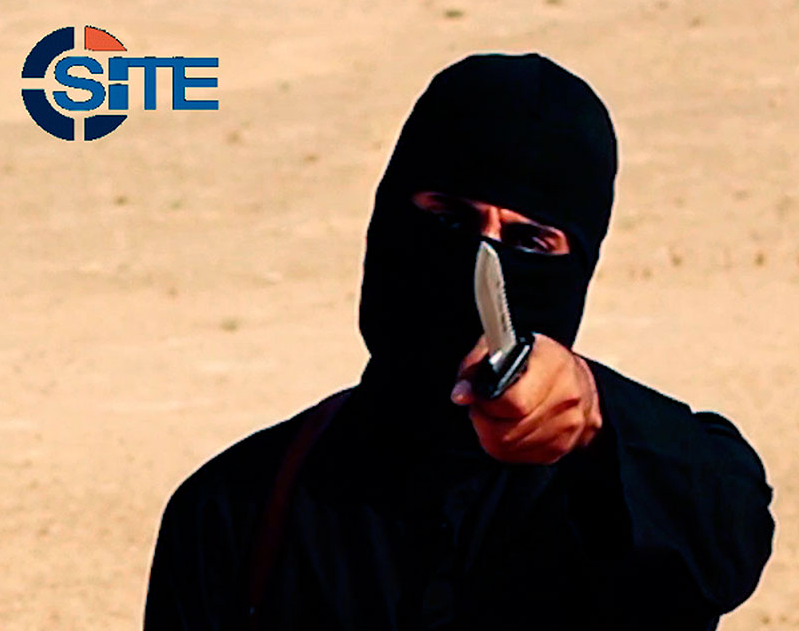
The man known as "Jihadi John" has apologized to his family for the shame he brought upon them for his part in the Islamic State beheadings, but he did not apologize for his gruesome actions.
Mohammed Emwazi, 26, sent a message of regret from Syria stating that he is sorry for the "problems and trouble the revelation of his identity has caused" for his family who has been forced into hiding after it was revealed that Emwazi was the masked man speaking on recent ISIS videos that showed the beheading of westerners and other enemies of the terrorist organization.
Emwazi's father, Jassem Emwazi, expressed his own shame last week through a colleague in Kuwait. "He was very emotional and crying the whole time," the co-worker, Abe Meshaal, explained. "He said, 'My son is a dog, he is an animal, a terrorist.' He said he had talked to him a lot trying to persuade him to return to his personal life but that the son didn't listen to him. He said, 'To hell with my son.'"
Meshaal added that in 2013, Mohammed Emwazi called home to ask for his parents' blessing as he set off to Syria to wage jihad. But Jassem became enraged and told his son, "I hope you die before you arrive in Syria."
Several days after these revelations were expressed, Emwazi's lawyer said that there was "no proof" that the masked executioner was Emwazi's son. This back-and-forth caused Kuwaiti officials to give the man an ultimatum: apologize once and for all or leave the country.
"Kuwait is a safe, peaceful country and does not want to be associated with Mohammed Emwazi," stated Abdullah Yousef Al-Maayouf, a member of the Kuwaiti National Assembly and chairman of the country's Parliamentary interior and defence committee. "What he has done is not his family's fault, but they should apologise on his behalf and say they do not agree with it. If they will not say this publicly, they should leave Kuwait."
Jassem is currently living in Kuwait with his oldest daughter, Asma, while his wife and remaining family members are back at their London home guarded by armed police in a hotel.
"Kuwait wants to distance itself from Mohammed Emwazi and officials here consider it a largely British issue. He was born here but brought up in London," Kuwaiti government adviser and security expert Dr Fahed Al-Shelaimi stated to the Daily Mail.
"His father's presence in Kuwait is embarrassing for the country. The Kuwaiti government doesn't want the headache, so will ask him gently to leave the country," he added.
"Jasem has already quit his job, and people are cursing his son - I doubt he will be able to stand the heat and I expect he will leave soon. In 90 per cent of cases when people are asked to leave here, they go quietly."
Meanwhile, it has also been revealed that Mohammed Emwazi was expelled from Tanzania following a drunken plan ride from Amsterdam to Dar es Salaam in 2009. Emwazi was travelling with Ali Adorus, who has since been jailed in Ethiopia for terrorism offenses, and both were reportedly detained for their conduct on the plane.
"They were insulting our immigration staff and other people," Mathias Chikawe, Tanzania's home affairs minister, said of the incident. Emwazi then is said to have returned to describe abusive treatment at the hands of the Tanzanian officials, which he describes as having been carried out "on foreign government orders."
Former teachers have said that Emwazi was bullied at school and did not have many friends, while a former partner in the Islamic State describes the man as a "cold" detached person who distanced himself from the other fighters.







